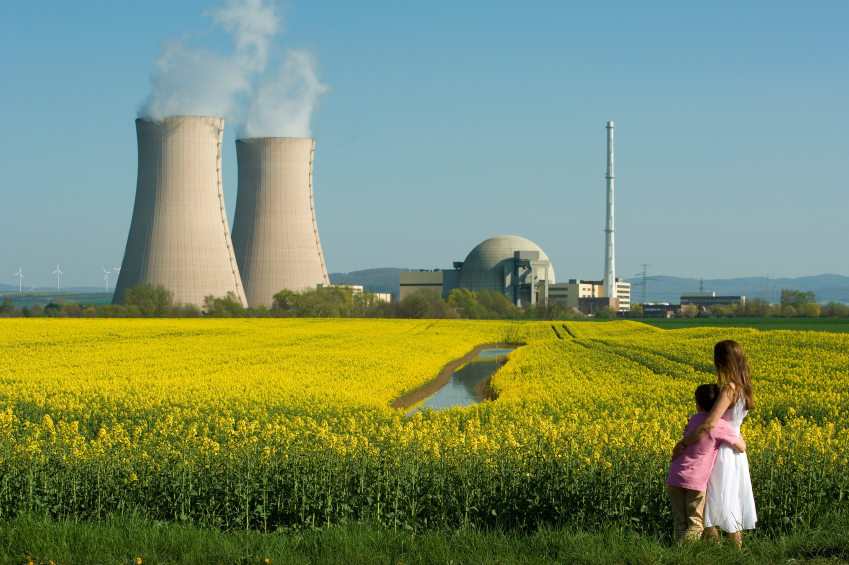
Various NGOs challenged the grant of permits to 3 new power stations in the Netherlands, because the state was exceeding its emission limits for sulphur dioxide (SO2) and nitrogen oxides (NOx) and the grant of permits would simply add to these exceedences. The case was referred to the CJEU. The Advocate-General thought that the exceedences were relevant to whether the permits should be granted – her opinion has been translated into virtually all Euro languages (including Maltese) but not English. Last week, the CJEU disagreed – in English.
The problem arose because the EU made two directives which didn’t talk to each other.
Directive 1 (NEC), 2001/81/EC laid down National Emission Ceilings for our pollutants; by its Article 4, the Netherlands was told not to emit any more than 50 kilotonnes of SO2 and 260 kilotonnes of NOx by the end of 2010. As that deadline approached, it was plainly not going to comply with this ceiling.
Directive 2 (IPPC) 96/61/EC (as codified by 2008/1/EC) required heavy industry to get permits before they could operate; it also provided for public participation in the permitting process. Our 3 power stations applied for and got their IPPC permits – the SO2 from the 3 would contribute 5.9% of the National Emission Ceiling for that pollutant. So the NGOs said – but hang on, you cant grant those permits, because every tonne thereby permitted would put Netherlands further in breach of the NEC Directive. They went to court in the Netherlands, and understandably the court referred a list of questions to CJEU by way of preliminary reference.
Advocate-General Kokott said, whilst you can’t equate the standards under IPPC with the national rules under NEC, you must not ignore the NEC when you decide whether to grant an IPPC permit. And she added that individuals should be able to rely on Article 4 NEC in the context of their undoubted public rights to participate under IPPC; in Euro-jargon, Article 4 NEC had “direct effect”, even though it was only on the face of it concerned with national emissions ceilings.
Oh no, said the CJEU. Article 4 NEC and the NEC directive as a whole
“is based on a purely programmatic approach under which the Member States enjoy wide flexibility as regards the choice of the policies and measures…in order progressively to achieve a structural reduction of emissions…to amounts not exceeding…the emission ceilings…..It follows that attainment of the objectives set by the directive cannot interfere directly in the procedures for grant of an environmental permit.” para.75.
And Article 4 does not lay down any unconditional and sufficiently precise obligation such as to entitle an individual to rely on it to make a claim in respect of an IPPC permit.
Well, this is really odd. Article 4 tells Member States to “limit their annual national emissions” to x tonnes. What could be clearer and more unconditional than that?
As ever, realpolitik lies beneath these bland formulations. The whole process of permitting, and energy policy in general, would be thrown into complete chaos if Member State limits were really regarded as, er, limits. You could not permit a shiny new efficient station to start operating until you had closed down a less efficient old one – and that, if achieveable at all under current EU law, would cause massive uncompensatable losses to the latter generator. In the greater scheme of things, this might be thought to be a good thing – Netherlands would maximise its energy yield from its allowable emissions. But this is not how the energy sector has been regulated in the past.
Instead, individuals were given a rather feeble consolation prize by the CJEU (readers over a certain age may recall the Crackerjack pencil: good Wiki article for those who are not). No, they could not play their role in enforcing Article 4 – if anyone could, it would be the Commission. Instead, they could enforce Article 6, which required Member States to come up with and update action programmes addressed at complying with Article 4. This Article 6 obligation was, mysteriously, “unconditional and sufficiently precise” on the principle, I suppose, that there either is, it is not, a programme purporting to address Article 4. The CJEU acknowledged that Member States would have
“wide flexibility in selecting the specific initiatives to be implemented, whilst it is also true that they are not obliged to adopt policies and measures to ensure that ceilings are not exceeded before the end of 2010.”
But, whilst this conferred a discretion, Article 6 involves limits on its exercise as to the appropriateness of the body of policies to the objective of limiting emissions – and those limits could be relied upon by individuals in national courts; para.103.
So the CJEU, faced with the consequences of ill-drafted and badly-intersecting legislation on similar subject-matter, bailed out – unlike the brave AG who thought that limits should be enforced by as many people as possible. But the game is not completely over for the NGOs, if the CJEU really means what it said about a proper review of the Article 6 programmes.
David Hart QC practices in environmental law, professional negligence, construction and medical law. This post was first published at http://ukhumanrightsblog.com/. ERIC Ltd is very grateful for his permission to reproduce it here.







